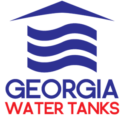Residential Rainwater Harvesting
Water your garden
Rainwater is BETTER than city water, because it doesn't have chlorine. This is one of the simplest uses for the water, and often we can use all the rainwater available just keeping the landscaping pretty?
Wash your car
Rainwater is often BETTER than city water, because of the lack of minerals. Spot-free wash!
Drinking rainwater
It's done all the time, but the art has been forgotten in much of the USA. Strain out the leaves and sticks, flush away the first portion of the rainfall, and keep the water cool and dark. We add sterilization in the form of UV light and carbon filtration. Atlanta is one of the few cities in the US with a code approval for residential potable rainwater harvesting.
Commercial Rainwater Harvesting
Irrigation
Often, commercial landscaping has an irrigation system, but it isn't used because of the cost of water. What if water was free? How much would a lush landscaping improve sales? Raise property values? In many areas, stormwater management requirements can be fulfilled using rainwater harvesting. Yes it costs more than the cheapest methods. But what is the payback on a retention pond?
Cooling Tower Makeup
In Georgia, cooling towers us about 7 gallons per square foot of conditioned space every year. What if that water was free? If your building is 9 stories or smaller, it can be. An additional benefit in some areas: the water is mineral-free, which can reduce water consumption.
Here again, rainwater harvesting as stormwater management is the only method with any sort of financial return. Designed right, the additional cost for rainwater harvesting will pay for itself many times over before the warranty expires. Add to that the extra resale value, and we see financial returns of 25% annually, year after year.
Vehicle Wash
Same as residential, washing vehicles with rainwater is BETTER than with city water. Spot free wash! In most cases, the adjacent garage provides more than enough water.
Toilet Flushing
Rainwater harvesting for toilet flushing meets LEED criteria for water efficiency, without the concerns of ultra low-flow and waterless fixtures. Treatment increases, both to keep the flush valves from sticking and because we are used to sparkling clear odor-free water in our toilets. Plumbing piping requirements go up.
Potable Rainwater in Commercial Buildings
The challenges here are more regulatory than technical. When a building owner chooses to use water other than municipal, it becomes a Public Water System, subject to Georgia EPD regulations. If this sounds intimidating it shouldn't; state parks and other rural developments fall under the same requirement. Reporting can be affordable and automated. Rainwater harvesting falls under the definitions of Surface Water as a source, and treatment methods are prescribed. If you have an owner that's willing to pioneer this path, we are ready to work with you.
Other Alternative Water Sources
Ground Water
In Atlanta and in many other cities, property owners must pay sewage fees for groundwater pumped into combined sewers. Georgia Water Tanks can help turn this expense into a resource, by collecting and using the water for cooling tower makeup, irrigation, or flushing toilets.
Condensate
When cooling an office, condensate from the air handlers will equal about 25% of the water needed for cooling tower makeup. And it's cool water, so even better for the towers. No treatment required!
Gray Water
In the industry, this means water that has been used on-site once already, but is cleaner than "black water." Common sources are showers, handwash sinks, laundry, and vehicle wash area runoff. Treatment methods vary, depending on the expected pollutants. NSF 350 is a new standard, designed to provide third-party certification for gray water treatment. There are 2 levels: residential and commercial.


